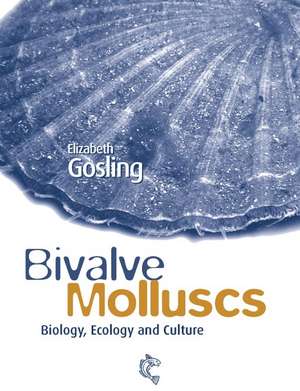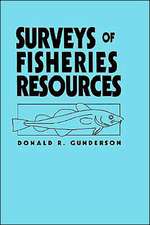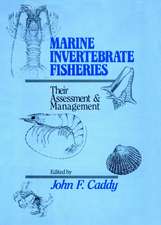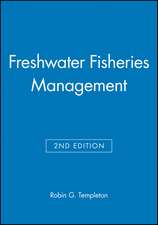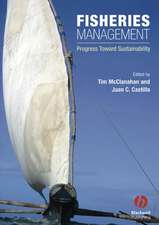Bivalve Molluscs – Biology, Ecology and Culture
Autor E Goslingen Limba Engleză Hardback – 21 ian 2003
Elizabeth Gosling who has a huge wealth of research, teaching and hands on experience working with bivalves, has written a landmark book that will stand for many years as the standard work on the subject. Chapters in Bivalve Molluscs cover morphology, ecology, feeding, reproduction, settlement and recruitment, growth, physiology, fisheries, aquaculture, genetics, diseases and parasites, and public health issues. A full understanding of many of these aspects is vital for all those working in bivalve fisheries and culture.
An essential purchase for anyone concerned with this important class of animals, copies of Bivalve Molluscs should be on the shelves of biologists, ecologists, environmental scientists, fisheries scientists and personnel within the aquaculture industry. Copies of the book should be available in all libraries and research establishments where these subjects are studied or taught.
Elizabeth Gosling is based at the Galway-Mayo Institute of Technology, Galway, Ireland.
Preț: 1542.19 lei
Preț vechi: 1694.71 lei
-9% Nou
295.10€ • 321.55$ • 248.66£
Carte tipărită la comandă
Livrare economică 23 aprilie-07 mai
Specificații
ISBN-10: 0852382340
Pagini: 456
Dimensiuni: 178 x 254 x 26 mm
Greutate: 1.15 kg
Editura: Wiley
Locul publicării:Chichester, United Kingdom
